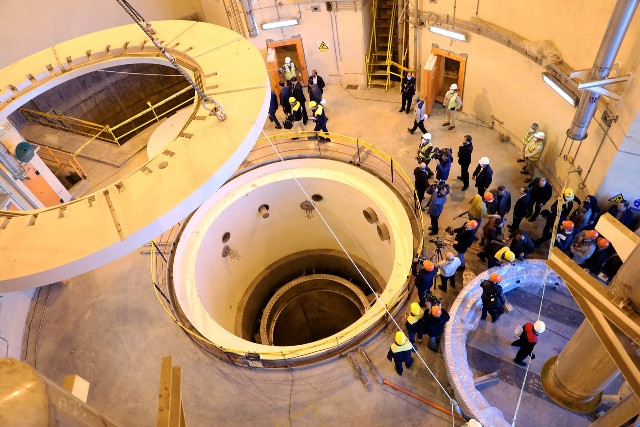Two earthquakes hit one of Iran's nuclear plants on Wednesday; just hours after it conducted ballistic missiles attack against US bases in Iraq amid tensions with Washington.
The said attack on Iraqi US bases was Iran's retaliation for the drone strike that killed its top general, Qassam Soleimani. No casualties were reported and US President Donald Trump has since deescalated, saying Washington will no longer pursue further military actions. The president called for renewed diplomacy with Iran.
The quake epicenters, however, was in the city of Borazajan. The city was well within a short distance from Iran's Bushehr nuclear power plant.
The first quake was 4.9 magnitudes. The second quake came 30 minutes later, measuring 4.5 magnitudes. Meanwhile, a 5.1 magnitude hit the same region less than two weeks ago.
In what would have been a twist into the heightened tensions over the past six days between Iran and the US, the earthquakes had to happen on Iran nuclear sites.
Iran's alleged stockpile of weapons of mass destruction is the center of America's critical ways of Iran. Indeed, even if Trump chose to deescalate military tensions after the Iranian ballistic missiles attack on Iraqi US bases, he never ceased linking Iran to a number of atrocities in the Middle East region.
In his speech on Wednesday at the White House, he alleged that Iran funded its proxy wars in the Middle East with the $150 billion and $1.8 billion in cash it got when the Iran Nuclear Deal was signed in 2015. He said Iran funded proxy wars in Yemen, Syria, Lebanon, Afghanistan, and Iraq. He said Soleimani had a hand in training terrorists that participated in these proxy wars.
Still, analysts were also critical of Trump when he pulled America out of the Iran Nuclear Deal in January 2019. The deal was formally known as the Joint Comprehensive Plan of Action or JCPOA.
The said deal was, after all, signed in Switzerland by the Obama administration, with the P5+1 Group of nations.
Iran, nevertheless, said it would abide by the deal even without the participation of the US as long as Europe, China, and Russia support the deal.
Indeed, Iran followed through with its promise with the United Nations and the International Atomic Energy Agency saying that Tehran halted its uranium enrichment activities. Tehran also reduced centrifuges of uranium for its atomic weapons. It even removed a heavy water reactor and instead filled the core with concrete cement, acting within the bounds of the JCPOA.
After Soleimani's death, however, Iran said it is no longer bounded by the JCPOA deal, hinting it won't be acting within the atomic limits in its weapon developments.





